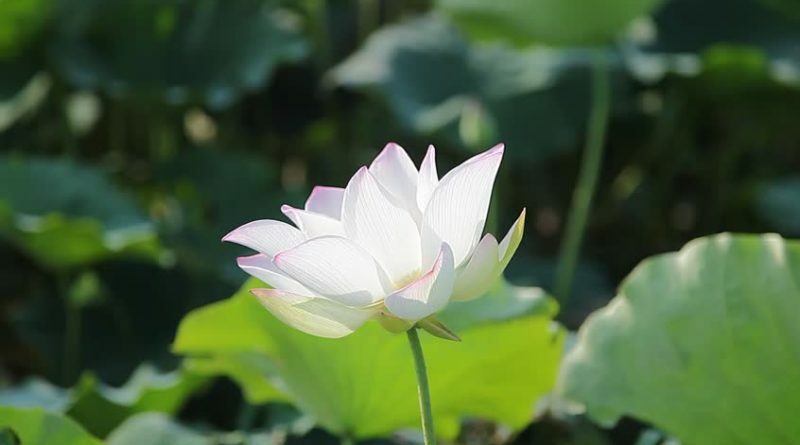LITTLE THINGS
Little Things
Patience is an important quality in the practice. The Pali word for patience, khanti, also means endurance, the willingness to stick with things over the long haul. And although the practice is a long haul, this willingness to stick with things over the long haul translates into the present moment as meticulousness. You’re very careful in the steps you’re following right now, step by step by step, not jumping over any steps, not trying to leap from the first floor to the fifth. You’re willing to go up the stairway, one step at a time, paying careful attention to what you’re doing. You’re willing to put your trust in the little things you can do in the present moment, confident that they’ll build into the bigger results you want.
We all want the big results. We want major happiness, major peace, major clarity in our minds. When we look at the step-by-step-by-step increments we have to follow, we sometimes get impatient and don’t trust them. How could little things like this build up to such big things as release, liberation, nibbana? That’s what we think. And yet it’s precisely the little unskillful things that get in the way of the big results we want, so we have to pay careful attention to them each time the mind pulls away from the desire for peace or the desire for true happiness. It’s a little pull, but over time it adds up to a major habit. The best way to fight this habit is with a path that’s made out of little steps that add up over time as well. At the same time, the willingness to look at the details means that your powers of perception, your powers of insight, get very sharp.
There are times when your practice seems to hit a plateau and it’s not going anywhere. At times like that, if you turn around to look at what you’ve been doing, you’ll realize that you haven’t been looking very carefully. In other words, your meditation has been put on automatic pilot and you’re not paying much attention. You’re just going through the motions, so the results just go through the motions as well. The cure for this lies in being very sensitive and precise about what you’re doing.
For example, focusing on the breath: Be really precise about any tiny little bit of tension or discomfort or dis-ease in the breath. Don’t slough over it, because paying attention to the little details is what brings you more and more into the present moment. If you’re sloughing over the details, you’re sloughing from the past into the future and skipping over the present. So pay close attention to each breath, to how the process of each breath feels in different parts of the body. As you develop your sensitivity, working through whatever tension you detect, you move from where it’s really tense to where it’s less and less tense, until things are so calm that you can detect even the slightest bit of tension. Work through it, work through it, even though it may seem like a little thing. If you leave it, it may turn out to be a seed. It may grow into something larger.
There’s a story in the Canon of a creeper seed that lands next to a sala tree. The devas in the other trees come around to comfort the deva in the sala tree, saying, “Have no fear. Have no fear. Don’t worry about that seed. Maybe a fire will burn it or a woodsman will chop it or step on it or a peacock will eat it or maybe it’s not even a seed.” Well, it turns out to be a seed. It sprouts and grows into a creeper, and the creeper grows up around the tree. At first the deva in the sala tree doesn’t understand why her friends were so concerned. After all, the creeper’s tendrils seem soft, downy, and tender. But then as the creeper grows bigger and bigger, it finally forms a canopy over the whole tree, pulls down the major limbs, and destroys the tree. That’s when the deva realized why her friends were so concerned.
This is one of the reasons why you have to be careful about little things, because sometimes they’re seeds that can grow. At the same time, when you’re attentive to little things, you’re beginning to plant your own seeds in the mind as well, different kinds of seeds: seeds of stronger mindfulness, stronger alertness, stronger willpower, determination. All the perfections needed for Awakening start with the little things, and they keep growing in little steps, little steps, through your being very, very attentive, very, very precise in what you’re doing. At the same time, though, you can’t be tense in what you’re doing. You just watch things very carefully.
This is why there’s so much emphasis on keeping a broad sense of awareness in the meditation. If your awareness gets very narrow and tense, it’s hard to maintain. But if your range of awareness is broad and yet your attention to the details of your focus is precise and sharp, that state of awareness is not just easy to sustain. It sustains itself and becomes a source of strength for the mind. In that way, it sustains you.
You want to apply this same attention to detail to all aspects of your life — not only while you’re sitting here with your eyes closed but also when you’re dealing with other people, doing work out in the orchard or at the guesthouse, whatever your activity. You want to be as precisely with the present moment as possible, so that skillful or unskillful states when they arise in the mind don’t pass by unnoticed. This is what it means to be uncomplacent in your practice of concentration. As we chanted just now, “One who sees danger and respects being heedful.” Well, the danger comes from little things, because little things can turn into big things and sneak up on you from behind.
There’s another passage in the Canon where the Buddha describes four things you shouldn’t overlook simply because they’re small. One is a small fire; another is a small snake; another is a small prince — the prince may be small right now but in a couple of years he can grow up and he can carry a grudge from age three to who knows how far. The fourth one is a young contemplative, because sometimes young contemplatives have gotten further in their meditation than you might assume. If you treat them with disrespect, that disrespect can backfire on you. Those are outside small things that you shouldn’t be careless or complacent about.
The inside ones, though, are even smaller and yet they can do even more damage, on the unskillful side. On the other side, small skillful things can do you a lot of good if you look after them. So don’t despise the little victories you achieve in your meditation, don’t be careless about the little defeats, because it’s step by step by step that you get more and more precisely into the present moment, which is where things are going to open up. If you’re not paying careful attention here, you’re not going to see the opening. So focusing on the little things is not a distraction from the larger issues of the practice. It’s actually in the little things that the larger ones appear.
So always keep this point in mind, especially when your meditation has hit a plateau or seems to be sliding downhill. Often it’s a problem of not paying careful attention, of simply going through the motions. Ajaan Suwat would often describe this as not having enough respect for the little things that you’re doing each moment. So try to meditate with an attitude of lightness, but at the same time a sense of respect, of real dedication. That’s how the principles of endurance and patience, which sound like long-term principles, translate into the present moment: being meticulous in what you’re doing right here, right now.



